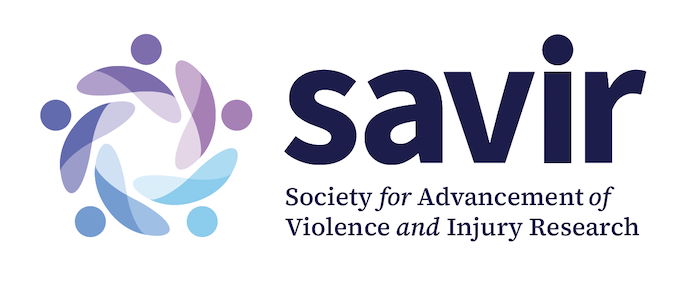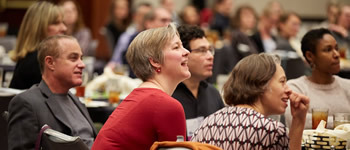Complete Story
05/28/2021
Reflections from the President
Congratulations to everyone who participated in our 2021 virtual conference. The impressive science that was presented during the conference was a testament to what has been accomplished in injury and violence prevention despite the turmoil that we’ve faced over the last year. If nothing else, these challenging times further demonstrate the need for injury and violence prevention research. It was humbling to see the work that each of you have done to meet that need.
From the opening session featuring the Morgan State Choir to the closing sessions which acknowledged the transformative work being done by our current and future injury and violence prevention research leaders, the week was filled with opportunities for us to reflect on our own accomplishments, learn from and engage with colleagues and set goals for the upcoming year. As you set those goals, please consider some of what we heard from just a few of our amazing conference speakers.
Dr. Shanthi Ameratunga urged us to remember some important points relative to our work with priority communities: 1) knowledge is a collective concept not only generated by those of us who are trained to produce generalizable knowledge but also, and perhaps more importantly, by those by those with the lived experience who are often seen but not heard, 2) disadvantage creates alienation, 3) step into someone else’s shoes and get out of our comfort zone, if you are comfortable you may be missing something, 4) despite all of our training, we need to be humble, 5) institutional bias cannot be ignored and , and 5) we must act now – celebrating great and small successes along the way.
Dr. Chandra Ford provided a detailed discussion of how we might account for and address racism in our injury violence prevention work; helping us think about how racism affects the outcomes we study and how we as researchers shape the understanding of racism in these relationships. She succinctly offered these words for us to consider our efforts to combat racism - name it, study it – develop substantive expertise, and address it within ourselves our fields and our institutions. Her charge to us: for each disparity you identify in your work, draw on one tool to ask, how is racism operating here? She pledged her support to our organization as we develop and carry out our anti-racism strategy.
Dr. Courtney Ryder urged us to challenge the invisible racism that exists but is unacknowledged in society. She asked us to reflect on the following and consider how it informs our standpoint as a person and researcher/practitioner: What knowledge systems inform your work or research? How would you describe your social position and location? What values (personal and professional) are important to you as an individual?
As an organization we are building new and stronger ties with our local and global communities, pushing our field to take an active approach to antiracism in their work, and creating a pipeline for a new generation of injury and violence prevention professionals. As president I am looking forward to continuing these efforts and plan to focus on ways to grow our resources and expand our network. I first became a member of SAVIR in graduate school and what I have always found most valuable about the organization is that SAVIR is a close network of people who genuinely care about doing good work. From pioneers in the field to our newest student members and future pioneers, we see people who understand the importance of sharing expertise and supporting each other because they know that’s what it takes to make a measurable change in the safety of our communities.
Thank you, again to our hosts, Johns Hopkins University, the planning committee, the IT and management teams and all of the volunteers that made this year’s conference a success. Thank you to our outgoing board members and welcome to our new ones. Congratulations to each of our award winners. And finally, a huge thank you to Theresa Cruz for her outstanding leadership over this last year.
As I look forward to my year as president , I’d like to challenge each of you to think about the role you can play in advancing the science of injury and violence prevention - whether it is forming a new collaboration across disciplines OR lending your expertise to practitioners and policymakers OR mentoring a new researcher – please set a new goal for yourselves and hopefully when we come together in person in Washington DC next year we can share and celebrate these accomplishments.




